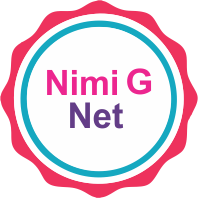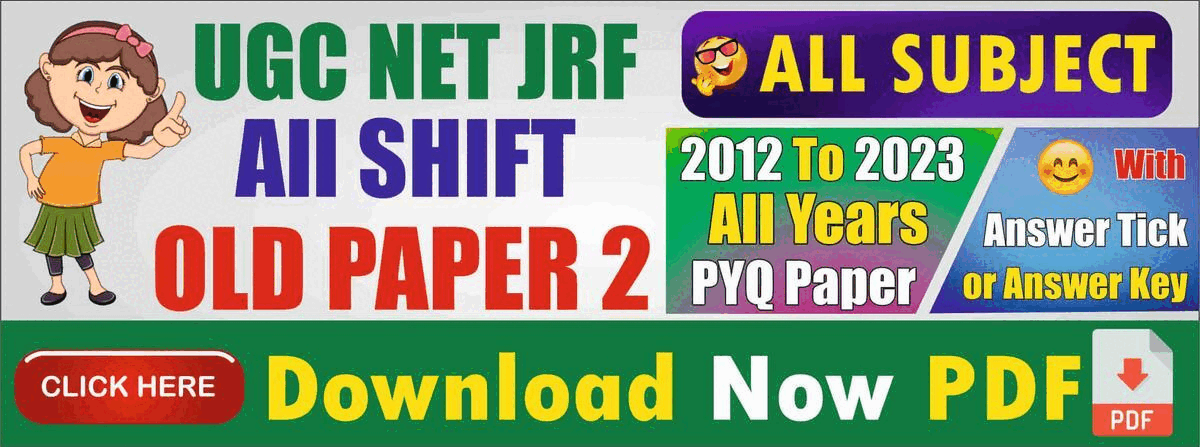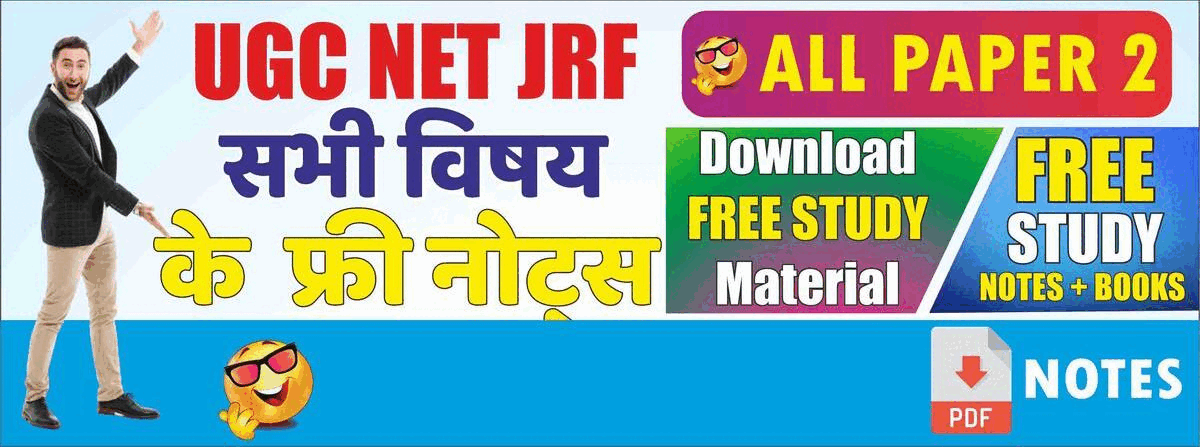UGC NET Paper 1 Syllabus 2023: Are you preparing for the UGC NET exam and looking for information about the Paper 1 syllabus? Then you’re in the right place. In this article, we’ll discuss the UGC NET Paper 1 syllabus in detail, including the exam pattern, important topics, and preparation tips.
Overview of the UGC NET Exam
The University Grants Commission National Eligibility Test (UGC NET) is a national-level exam conducted by the National Testing Agency (NTA) on behalf of the University Grants Commission (UGC). It is held twice a year to select eligible candidates for the post of Assistant Professor and Junior Research Fellowship (JRF) in Indian universities and colleges.
Importance of Paper 1 Syllabus
The Paper 1 syllabus of UGC NET is designed to test the candidates’ teaching and research aptitude. It covers a wide range of topics, from comprehension and communication to logical and mathematical reasoning. A good understanding of Paper 1 syllabus is essential for UGC NET aspirants, as it sets the foundation for the subsequent subject-specific papers and determines their eligibility for the post of Assistant Professor and JRF.
Purpose of the Article
The purpose of this article is to provide a comprehensive guide to the UGC NET Paper 1 syllabus. It aims to help UGC NET aspirants understand the syllabus structure, the significance of each topic, and develop effective preparation strategies. The article will cover all the essential topics in detail, and conclude with a summary and pertinent FAQs.
Understanding the UGC NET Paper 1 Syllabus
Here is a table summarizing the syllabus and exam pattern of Paper-I: General Aptitude:
| Section | Number of Questions | Marks | Topics |
|---|---|---|---|
| Teaching Aptitude | 5 | 10 | Principles of teaching, teaching methods, classroom management, and evaluation systems |
| Research Aptitude | 5 | 10 | Meaning and characteristics of research, types of research, research ethics, and research report writing |
| Comprehension | 5 | 10 | Comprehension passages, vocabulary, and sentence completion |
| Communication | 5 | 10 | Verbal and non-verbal communication, communication barriers, and effective communication in the classroom |
| Mathematical Reasoning and Aptitude | 5 | 10 | Mathematical reasoning ability |
| Logical Reasoning | 5 | 10 | Verbal reasoning, analogy, series completion, and classification |
| Data Interpretation | 5 | 10 | Graphical representation, pie charts, bar graphs, and data analysis |
| Information and Communication Technology (ICT) | 5 | 10 | ICT: meaning, advantages, disadvantages, and uses |
| People and Environment | 5 | 10 | Environment, human population, and sustainable development |
| Higher Education System: Governance, Polity, and Administration | 5 | 10 | Structure of the institutions for higher learning and research in India, formal and distance education, professional/technical and general education, value education, governance, polity, and administration |
The Paper-I of UGC NET exam consists of 50 objective type questions, and the total marks for this section are 100. The duration of the exam is 1 hour, and the exam is conducted in online mode. Each correct answer carries 2 marks, and there is no negative marking for incorrect answers.
Definition and Scope of the Paper 1 Syllabus
The Paper 1 syllabus of UGC NET is designed to assess the teaching and research aptitude of the candidates. It tests the candidates’ understanding of various concepts related to teaching, research, and general awareness. The syllabus is broad and covers a wide range of topics, from comprehension and communication to logical and mathematical reasoning.
UGC NET Exam Pattern
UGC NET is a national-level exam that tests the eligibility of candidates for the post of Assistant Professor and for Junior Research Fellowship (JRF) in Indian universities and colleges. The exam is conducted in two papers: Paper-I and Paper-II. Paper-I is common for all candidates and tests their general aptitude, while Paper-II is specific to the subject selected by the candidate.
Here is a table that summarizes the UGC NET exam pattern:
| Paper | Number of Questions | Marks per question | Total Marks |
|---|---|---|---|
| I | 50 | 2 | 100 |
| II | 100 | 2 | 200 |
Note: Each question carries 2 marks, and there is no negative marking in Paper-I and Paper-II.
Paper 1 Syllabus Topics and Subtopics
The Paper 1 syllabus of UGC NET consists of ten main topics, each with its subtopics. The topics covered in the syllabus are:
- Teaching Aptitude
- Research Aptitude
- Comprehension
- Communication
- Mathematical Reasoning and Aptitude
- Logical Reasoning
- Data Interpretation
- Information and Communication Technology (ICT)
- People, Development and Environment
- Higher Education System: Governance, Polity, and Administration
Each of these topics covers specific subtopics that the candidates need to study in detail.
Comparison between Previous and Current Syllabus
Over the years, there have been significant changes in the Paper 1 syllabus of UGC NET. The current syllabus is more comprehensive and covers a broader range of topics compared to the previous syllabus. The current syllabus includes topics like Information and Communication Technology (ICT) and Higher Education System: Governance, Polity, and Administration, which were not part of the previous syllabus.
Recent Changes in the Syllabus
The UGC has made several changes to the Paper 1 syllabus of UGC NET in recent years. The latest syllabus was introduced in June 2019, and it includes topics like ICT and People, Development, and Environment. The new syllabus also gives more emphasis on research aptitude and critical thinking. The changes in the syllabus are made to keep up with the changing needs of the education sector and to ensure that the candidates are equipped with the necessary skills to excel in their profession.
Preparing for UGC NET Paper 1
Tips to Prepare for Paper 1 Syllabus
- Understand the syllabus structure and focus on weak areas
- Create a study plan and stick to it
- Revise regularly and practice previous year question papers
- Improve comprehension and communication skills
- Develop mathematical and logical reasoning abilities
- Stay updated with current affairs and general awareness
Resources for Paper 1 Syllabus Preparation
- NCERT textbooks for classes 9-12
- UGC NET Paper 1 Books by reputable publishers
- Online courses and video lectures
- Mock tests and question banks
- Educational websites and blogs
Common Mistakes to Avoid While Preparing for Paper 1
- Not understanding the syllabus structure and focusing on irrelevant topics
- Not practicing enough previous year question papers and mock tests
- Neglecting general awareness and current affairs
- Not revising regularly and forgetting important topics
- Not improving comprehension and communication skills
- Overconfidence and underestimating the difficulty level of the exam
Breaking down UGC NET Paper 1 Syllabus
Unit-I Teaching Aptitude
- Teaching: Concept, Objectives, Levels of teaching (Memory, Understanding and Reflective), Characteristics and basic requirements.
- Learner’s characteristics: Characteristics of adolescent and adult learners (Academic, Social, Emotional and Cognitive), Individual differences.
- Factors affecting teaching related to: Teacher, Learner, Support material, Instructional facilities, Learning environment and Institution.
- Methods of teaching in Institutions of higher learning: Teacher centred vs. Learner centred methods; Off-line vs. On-line methods (Swayam, Swayamprabha, MOOCs etc.).
- Teaching Support System: Traditional, Modern and ICT based.
- Evaluation Systems: Elements and Types of evaluation, Evaluation in Choice Based Credit System in Higher education, Computer based testing, Innovations in evaluation systems.
Unit-II Research Aptitude
- Research: Meaning, Types, and Characteristics, Positivism and Post- positivistic approach to research.
- Methods of Research: Experimental, Descriptive, Historical, Qualitative and Quantitative methods.
- Steps of Research.
- Thesis and Article writing: Format and styles of referencing.
- Application of ICT in research.
- Research ethics.
Unit-III Comprehension
- A passage of text be given. Questions be asked from the passage to be answered.
Unit-IV Communication
- Communication: Meaning, types and characteristics of communication.
- Effective communication: Verbal and Non-verbal, Inter-Cultural and group communications, Classroom communication.
- Barriers to effective communication.
- Mass-Media and Society.
Unit-V Mathematical Reasoning and Aptitude
- Types of reasoning.
- Number series, Letter series, Codes and Relationships.
- Mathematical Aptitude (Fraction, Time & Distance, Ratio, Proportion and Percentage, Profit and Loss, Interest and Discounting, Averages etc.).
Unit-VI Logical Reasoning
- Understanding the structure of arguments: argument forms, structure of categorical propositions, Mood and Figure, Formal and Informal fallacies, Uses of language, Connotations and denotations of terms, Classical square of opposition.
- Evaluating and distinguishing deductive and inductive reasoning.
- Analogies.
- Venn diagram: Simple and multiple use for establishing validity of arguments.
- Indian Logic: Means of knowledge.
- Pramanas: Pratyaksha (Perception), Anumana (Inference), Upamana (Comparison), Shabda (Verbal testimony), Arthapatti (Implication) and Anupalabddhi (Non-apprehension).
- Structure and kinds of Anumana (inference), Vyapti (invariable relation), Hetvabhasas (fallacies of inference).
Unit-VII Data Interpretation
- Sources, acquisition and classification of Data.
- Quantitative and Qualitative Data.
- Graphical representation (Bar-chart, Histograms, Pie-chart, Table-chart and Line-chart) and mapping of Data.
- Data Interpretation.
- Data and Governance.
Unit-VIII Information and Communication Technology (ICT)
- ICT: General abbreviations and terminology.
- Basics of Internet, Intranet, E-mail, Audio and Video-conferencing.
- Digital initiatives in higher education.
- ICT and Governance.
Unit-IX People, Development and Environment
- Development and environment: Millennium development and Sustainable development goals.
- Human and environment interaction: Anthropogenic activities and their impacts on environment.
- Environmental issues: Local, Regional and Global; Air pollution, Water pollution, Soil pollution, Noise pollution, Waste (solid, liquid, biomedical, hazardous, electronic), Climate change and its Socio-Economic and Political dimensions.
- Impacts of pollutants on human health.
- Natural and energy resources: Solar, Wind, Soil, Hydro, Geothermal, Biomass, Nuclear and Forests.
- Natural hazards and disasters: Mitigation strategies.
- Environmental Protection Act (1986), National Action Plan on Climate Change, International agreements/efforts -Montreal Protocol, Rio Summit, Convention on Biodiversity, Kyoto Protocol, Paris Agreement, International Solar Alliance.
Unit-X Higher Education System
- Institutions of higher learning and education in ancient India.
- Evolution of higher learning and research in Post Independence India.
- Oriental, Conventional and Non-conventional learning programmes in India.
- Professional, Technical and Skill Based education.
- Value education and environmental education.
- Policies, Governance, and Administration.
Ugc Net Paper 1 Syllabus in English Pdf Download 2023
Tips for cracking UGC NET Paper 1
-
Time Management
- Create a study plan that includes sufficient time for each topic
- Prioritize topics based on their weightage in the exam
- Take breaks and maintain a healthy work-life balance
- Avoid last-minute cramming and focus on revision and practice
-
Examination Pattern
- Understand the exam pattern and marking scheme
- Analyze previous year question papers to identify trends and important topics
- Focus on improving speed and accuracy
- Learn time management skills and attempt questions strategically
-
Mock Tests
- Take mock tests regularly to assess your preparation level
- Analyze your performance and identify weak areas
- Practice time management and attempt mock tests in exam-like conditions
- Take feedback from mentors and experts to improve your performance
-
Self-Evaluation
- Evaluate your own performance and progress regularly
- Identify areas where you need improvement and focus on them
- Set realistic goals and track your progress towards achieving them
- Take feedback from peers, mentors, and experts to improve your performance.
FAQS on UGC NET Paper 1 Syllabus
What is the Nature of Paper 1 Syllabus?
The Paper 1 syllabus of UGC NET is designed to assess the teaching and research aptitude of the candidates. It tests the candidates’ understanding of various concepts related to teaching, research, and general awareness. The syllabus is broad and covers a wide range of topics, from comprehension and communication to logical and mathematical reasoning.
How to Prepare for UGC NET Paper 1 Syllabus?
- Understand the syllabus structure and focus on weak areas
- Create a study plan and stick to it
- Revise regularly and practice previous year question papers
- Improve comprehension and communication skills
- Develop mathematical and logical reasoning abilities
- Stay updated with current affairs and general awareness
- Take mock tests to assess your preparation level
- Identify and rectify your mistakes
What are the Common Mistakes to Avoid During Paper 1 Syllabus Preparation?
- Not understanding the syllabus structure and focusing on irrelevant topics
- Not practicing enough previous year question papers and mock tests
- Neglecting general awareness and current affairs
- Not revising regularly and forgetting important topics
- Not improving comprehension and communication skills
- Overconfidence and underestimating the difficulty level of the exam
How to Crack UGC NET Paper 1 Syllabus in the First Attempt?
- Create a study plan and stick to it
- Prioritize topics based on their weightage in the exam
- Practice previous year question papers and mock tests regularly
- Improve comprehension, communication, mathematical, and logical reasoning skills
- Stay updated with current affairs and general awareness
- Take feedback from mentors and experts to improve your performance
- Attempt the exam strategically and manage time effectively
What are the Best Resources to Prepare for UGC NET Paper 1 Syllabus?
- NCERT textbooks for classes 9-12
- UGC NET Paper 1 Books by reputable publishers
- Online courses and video lectures
- Mock tests and question banks
- Educational websites and blogs
- Reference books by renowned authors in the field.
Conclusion:
In conclusion, the Paper 1 Syllabus of UGC NET is an important component of the exam, designed to assess the teaching and research aptitude of candidates. Understanding the syllabus structure, improving comprehension and communication skills, and staying updated with current affairs and general awareness are some of the key factors for cracking the exam.
Recap of Important Points:
- Paper 1 Syllabus assesses the teaching and research aptitude of candidates
- Understanding the syllabus structure and prioritizing topics is crucial
- Regular revision and practice of previous year question papers and mock tests are essential
- Improving comprehension, communication, mathematical, and logical reasoning skills is important
- Staying updated with current affairs and general awareness is crucial
- Taking feedback from mentors and experts and attempting the exam strategically can lead to success.
Final Thoughts and Recommendations:
To crack the UGC NET Paper 1 Syllabus, candidates must have a comprehensive understanding of the syllabus structure and prioritize their preparation accordingly. Regular revision, practice, and improvement of essential skills, along with staying updated with current affairs and general awareness, are vital for success. It is recommended to take feedback from mentors and experts to improve performance and attempt the exam strategically.
Future of UGC NET Paper 1 Syllabus:
As the field of education and research continues to evolve, the UGC NET Paper 1 Syllabus is likely to undergo changes and updates in the future. It is important for candidates to stay updated with any changes in the syllabus structure and adapt their preparation accordingly. Moreover, advancements in technology may result in changes in the exam pattern and evaluation process, leading to a more streamlined and efficient assessment system.





